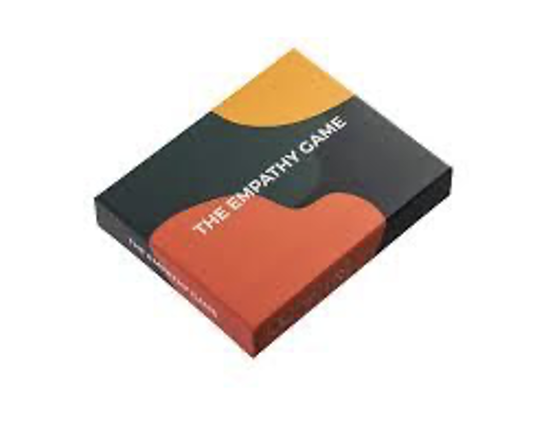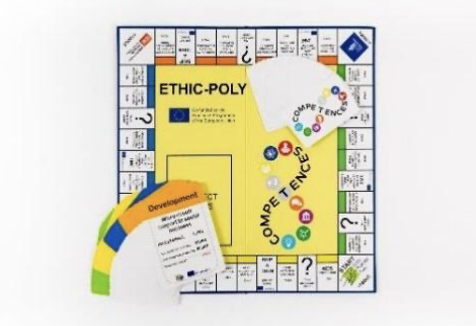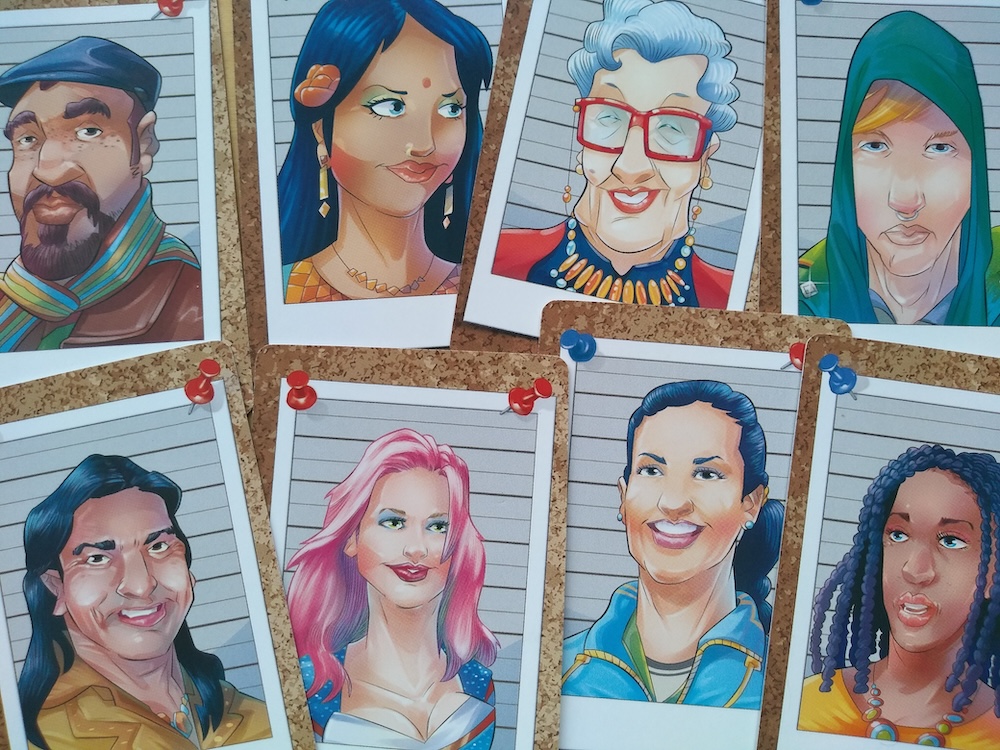| Duration: 30+ min Number of players: 2 – 6 player/s Materials/ Tools needed: Card set “The Empathy game” Publisher: Saskia Hermann, Jorik Elferink Language: EN Links: https://theempathygame.com/ |
Short description
“The Empathy Game” – players draw question cards (150 cards total) in three categories (the category is determined with a category die) and have to answer them:
- “Memory” cards require you to remember facts about yourself, for example: “What has been incredibly rewarding to do?”
- “Who is…?” cards about your tastes or interests that help understand “who you are”, for example: “What interests you that most people know little about?”
- “Imagine” cards require you to imagine what you would do, think or be in a given situation, for example, “If you could turn any activity into an Olympic sport, what would you win a gold medal for?”
Educational value/ Learning Objectives
The strength of the game is that:
- You will learn things about others that you would have never asked.
- The questions are generally very open and enable you to answer in a light manner or more deeply, according to your mood (for example “What would you stop doing if you could?” or “What’s a life goal you’ve discarded?”).
Recommendations for use
- The “engagement die” can be a bit less easy to use. It enables to go beyond the initial answer, but players might start “commenting” other player’s answers (you want absolute benevolence from everyone or players start to censor themselves), and the fact that it is based on our senses often feels strange (who knows what is the “smell” of “I have decided to abandon learning to play the guitar”?).
- An “engagement die” that is thrown after the question card has been answered. It challenges the players to engage with the answer or story, guided by one of the following categories:
- Colour of the story
- Draw the story
- Smell of the story
- Taste of the story
- Feeling of touch of the story
- Body pose that best represents the story
- The game is simple. You pick a card and tell your story, from the everyday to the fantastic. Afterwards the listeners engage with your story by throwing the dice and exploring elements of their human experience.
- Be creative! Make new rules of the game which are most appropriate for your needs! Good luck!
Tips and Tricks for Facilitators
How to adapt game for different groups, topics, occasions/needs
You can also give cards to the learners and invite them to go outside for a walk during which they answer questions, speak, and share thoughts! To highlight the education aspect, after playing the cards short debriefing sessions could be very useful.
Feedback questions
- Individual self-reflection
- What can I learn from this activity?
- Which sentence made me think the most?
- Pairs conversations
- Did you find some answers that surprised you? Which ones and why?
- What was the most challenging? Why?
- Discussions in groups
- What competences can you develop through this game?
- How would they help you in a professional and personal life?
Further discussion topics
Personal & Professional development




